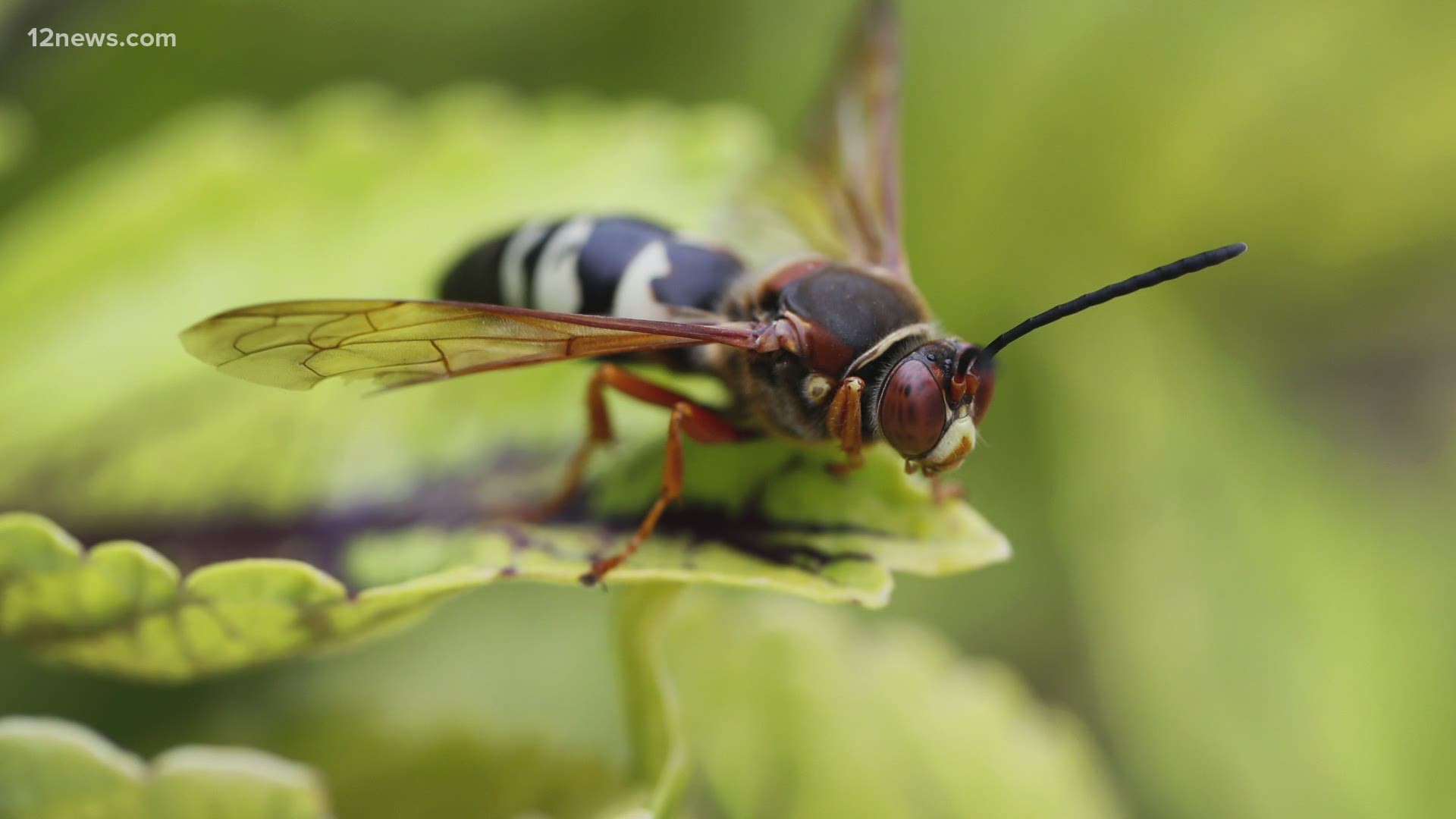ARIZONA, USA — All summer long, Arizonans encounter insects of all different kinds like "Cicada Killer Wasps" and the notorious "Murder Hornets."
But what exactly should we know about them?
First, there is a major distinction between the two, as Gene Hall with the University of Arizona's Insect Collection Department explained.
"People were confusing that or curious if the Cicada Killer Wasp that occurs in Arizona was the Asian Giant Hornet," he said.
Hall said that, in 36 years of studying insects, there's really no need to worry even though the names of both respective bugs can be daunting.
"The name is generally associated with the fact that it kills other insects and feeds on other insects," Hall added.
Even though the Cicada Killer Wasps are native to the Grand Canyon State, Hall says, don't be alarmed, simply be aware.
"Cicada Killer Wasps are actually a pollen feeder or nectar feeder, I should say, so both wasps feed on two different things they have two different kinds of life histories," Hall added.
He said the heightened concerned is credited to the recent quarantine and more people at home during the summer months, meaning they notice new creatures.
"They were just seeing these wasps for the first time after living here for 10, 20, 30 years so it did seem like this year we were seeing this year an abundance of Cicada Killer wasps out," he said.
Plus, the excessively hot and dry summer we've had in 2020 impacts the insects’ pattern.
"Sometimes, they're not staying out or being as active as usual, because of the lack of water or lack of moisture and the excessive heat," Hall said.
Again, there's truly no cause for concern, in fact, Hall said, take the time to enjoy and observe the insects.
"Just let them be, let them do their thing, they're going about their daily business of doing what they need to do to survive, feeding off pollen or nectar whatever they're into as adults and finding hosts to feed their young," he said.

